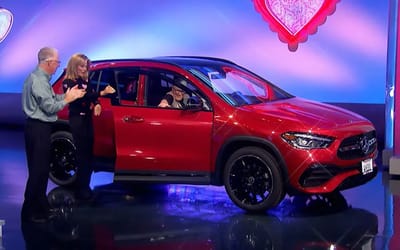Electric vehicle batteries can easily outlive an average gas car in the US' lifespan, study reveals
Published on Jun 20, 2025 at 10:03 AM (UTC+4)
by Jason Fan
Last updated on Jun 20, 2025 at 4:40 PM (UTC+4)
Edited by
Kate Bain
Electric vehicle batteries have long been a target for skeptics who claim they won’t last more than a few years.
Critics often argue that the cost and reliability of battery replacements make EVs a poor long-term investment.
But new research shows those fears are largely unfounded.
According to a recent study, EV batteries can easily outlast the average gas-powered car on US roads.
VISIT SBX CARS – View live supercar auctions powered by Supercar Blondie
Electric vehicle batteries are quite reliable
According to Geotab’s findings, the average EV battery can last up to 20 years, with minimal annual degradation.
That’s six years longer than the average lifespan of a gas-powered vehicle in the United States, which currently stands at around 14 years.
Of course, 14 years is just the average number, and many vehicles are perfectly functional for decades, like the oldest licensed ambulance in the world.
The data, drawn from over 10,000 electric vehicles, shows that batteries lose only about 1.8 percent of their original capacity per year.
This means an EV would retain roughly 64 percent of its range even after two decades of use, which is a significant lifespan by any standard.

Importantly, the study also noted that actual battery failures are exceedingly rare, disproving one of the most common EV myths.
Modern EVs built in the last decade show a battery failure rate of less than 0.5 percent, emphasizing that major battery issues are not common.
Battery degradation isn’t entirely linear, either.
Most degradation occurs in the first few years and again toward the end of the battery’s life, with a relatively stable period in between.
How charging habits affect the life of EV batteries
Environmental factors also play a role.
In particular, hot climates accelerate battery wear, especially during charging.
Modern EVs come equipped with thermal management systems to control battery temperature, but parking in the shade and avoiding excessive heat can help further extend battery life.

Charging habits also make a difference. DC fast charging causes slightly more degradation than slower Level 1 or Level 2 charging.
Basically, if your EV battery can fully recharge in 18 seconds, chances are it won’t be as durable.
Additionally, for nickel-based batteries, keeping the battery’s state of charge between 20 percent and 80 percent helps maximize lifespan.
For lithium iron phosphate (LFP) batteries, which are more stable, this restriction isn’t as critical, although it is still recommended to avoid 100 percent top-offs continuously.
Of course, just like gas engines experience wear and tear over time, EV batteries will inevitably degrade.
However, this study offers compelling evidence that modern electric vehicle batteries are built to outlast not only the skepticism, but also the average gas car on American roads.
DISCOVER SBX CARS: The global premium car auction platform powered by Supercar Blondie
Jason joined the editorial team at Supercar Blondie in April 2025 as a Content Writer. As part of the growing editorial team working in Australia, and in synergy with team members in Dubai, the UK, and elsewhere in the world, he helps keep the site running 24/7, injecting his renowned accuracy and energy into every shift.




